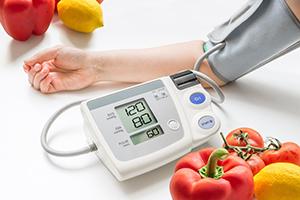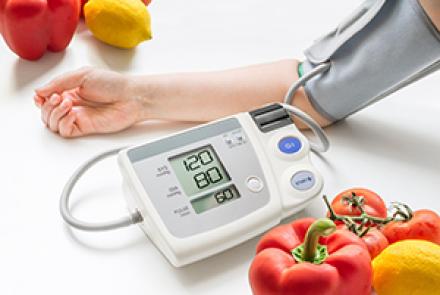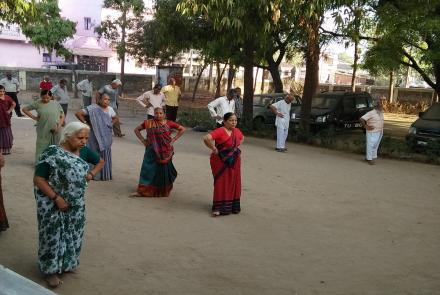People often fail to recognize the significant dangers of dehydration in winter, dismissing it as a health concern of hot, summer months. Dr Shital Raval corrects this common misconception and advocates why water is crucial even during the cold weather to stay energized.
Dehydration is a hidden threat in the months of winter when many people forget to drink as much water as they do in hot summer months. This is a common psychological mistake as we easily forget about hydration in the cold…

Hypertension has few symptoms, and often none. Yet, it becomes a lifetime companion after detection, requiring care and often medication, without which it runs the risk of turning serious. Dr. Shital Raval busts common myths and misconceptions here:
- It only happens to old people!
High blood pressure is not a problem that is only associated with old people anymore! Young people these days are also suffering from blood pressure problems. According to WHO (World Health Organisation), one in three people above the age of 18 are affected by high blood pressure. This statistic increases with age.
- I have no symptoms. I have nothing to worry about!
In most cases, high blood pressure presents with no symptoms. People end up with kidney and heart problems without ever knowing they have hypertension. It is often detected at a doctor’s clinic during a routine check-up. Hence, it is termed the “silent killer”, which can strike suddenly.
- High BP runs in my family, so I cannot prevent it.
Hereditary factors can play a role in hypertension. If your parents or siblings have had hypertension, your chances of getting are higher. Remember that control of various factors like diet, smoking, stress and other lifestyle issues can also play a role in preventing high blood pressure.
- I don’t use table salt, so I am okay.
Not using table salt and reducing salt during cooking is a great way to cut down on salt intake, but it is not enough. Salt is hidden in various other processed foods like pickles, papads, snacks, cured meats, cold cuts, condiments, beverages etc. According to CDC (Center of Disease Control), more than 75% of salt consumed comes from processed and restaurant foods. Watch out for labels in processed foods that list sodium chloride, Na, soda(sodium bicarbonate) or MSG (monosodium glutamate). Even bakery goods like breads contain salt in the form of baking soda or baking powder.
DASH Diet to control High Blood Pressure
- I use sea salt which has less sodium.
Despite what you are told, sea salt and table salt have the same amount of sodium by weight. Sea salt is processed differently and may have more trace minerals than the highly refined table salt. Sea salt is often promoted as being healthier but that is a myth! Whichever salt you use, remember that dietary guidelines recommend limiting it to less than 2300 mg per day.
- If my BP is high during one reading, does that mean I have Hypertension?
The blood pressure in the body fluctuates slightly through the day. It is known to be lower during sleep and increases on waking up. It can also increase due to nervousness or moments of stress, excitation or excess activity. For instance, often an individual’s BP may rise during a check at the doctor’s office due to the stress of being checked . This is called “White coat hypertension”. Hence, a single reading is never diagnostic for hypertension. Multiple readings of high BP over time are considered standard for diagnosis.
- With medication use, my pressure has dropped and stabilised. Can I stop taking the medications now?
Hypertension can be a lifelong condition! It would be best to follow your doctor’s instructions regarding treatment and lifestyle changes. Removal of the medication may cause a rise on the BP again! Any medication should not be stopped without first consulting your doctor.
10 Clear Tips for Managing Hypertension
- I get my BP checked whenever I see my doctor. Why do I have to check it at home?
Frequent and regular monitoring of BP outside the doctor’s visits can help one be more aware of BP fluctuations and track changes. In addition, it can provide clues to possible triggers and variations through the day. Keeping a diary of the readings is helpful and can be shared with your doctor. Remember, that for digital BP monitors, an average of 3 readings should be taken.
- High blood pressure can be cured with medication
Hypertension is commonly a chronic condition that can be easily managed but not always cured. Steady lifestyle changes with diet and daily medications may be required for a lifetime.
Community
Condition
















